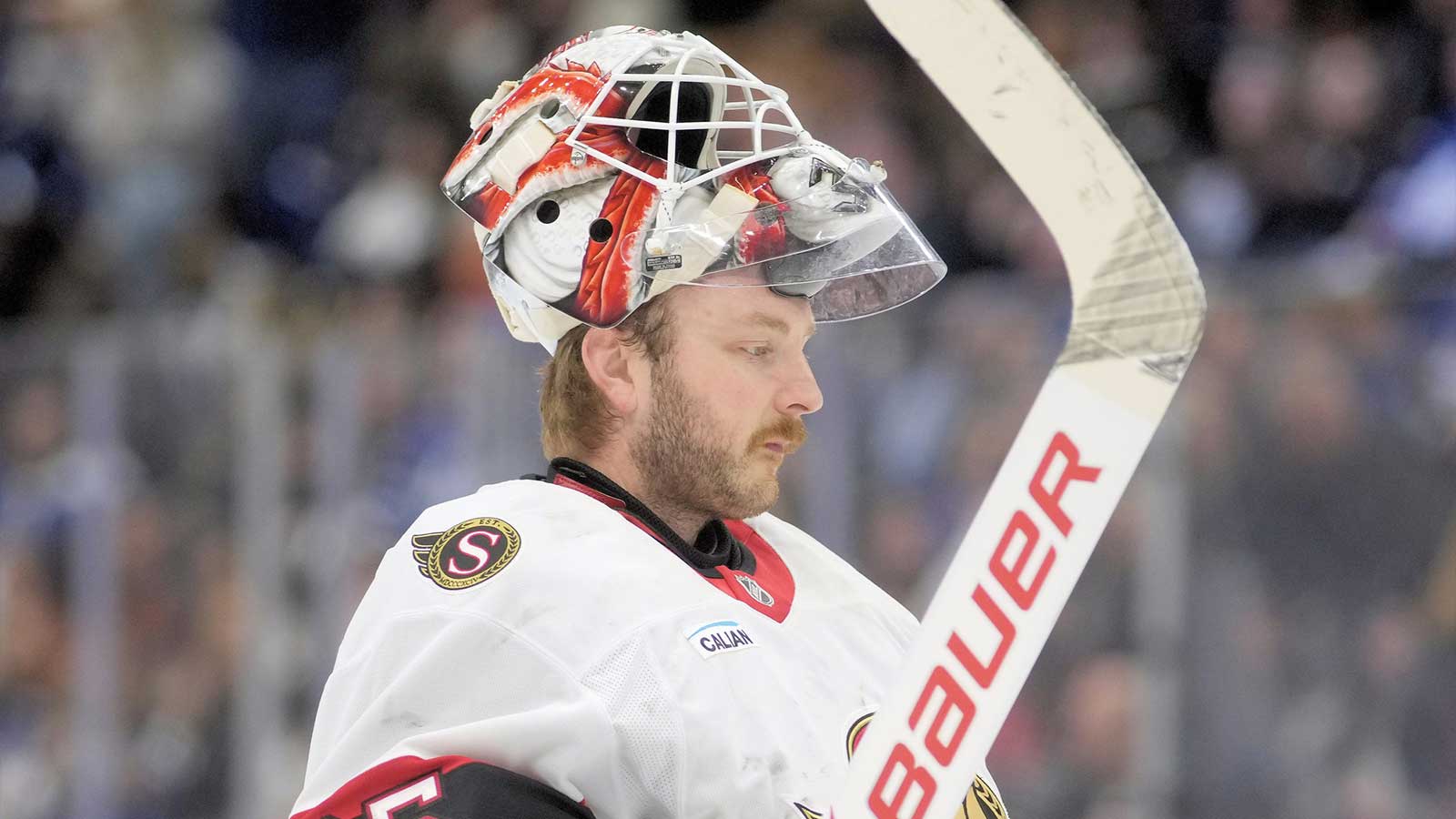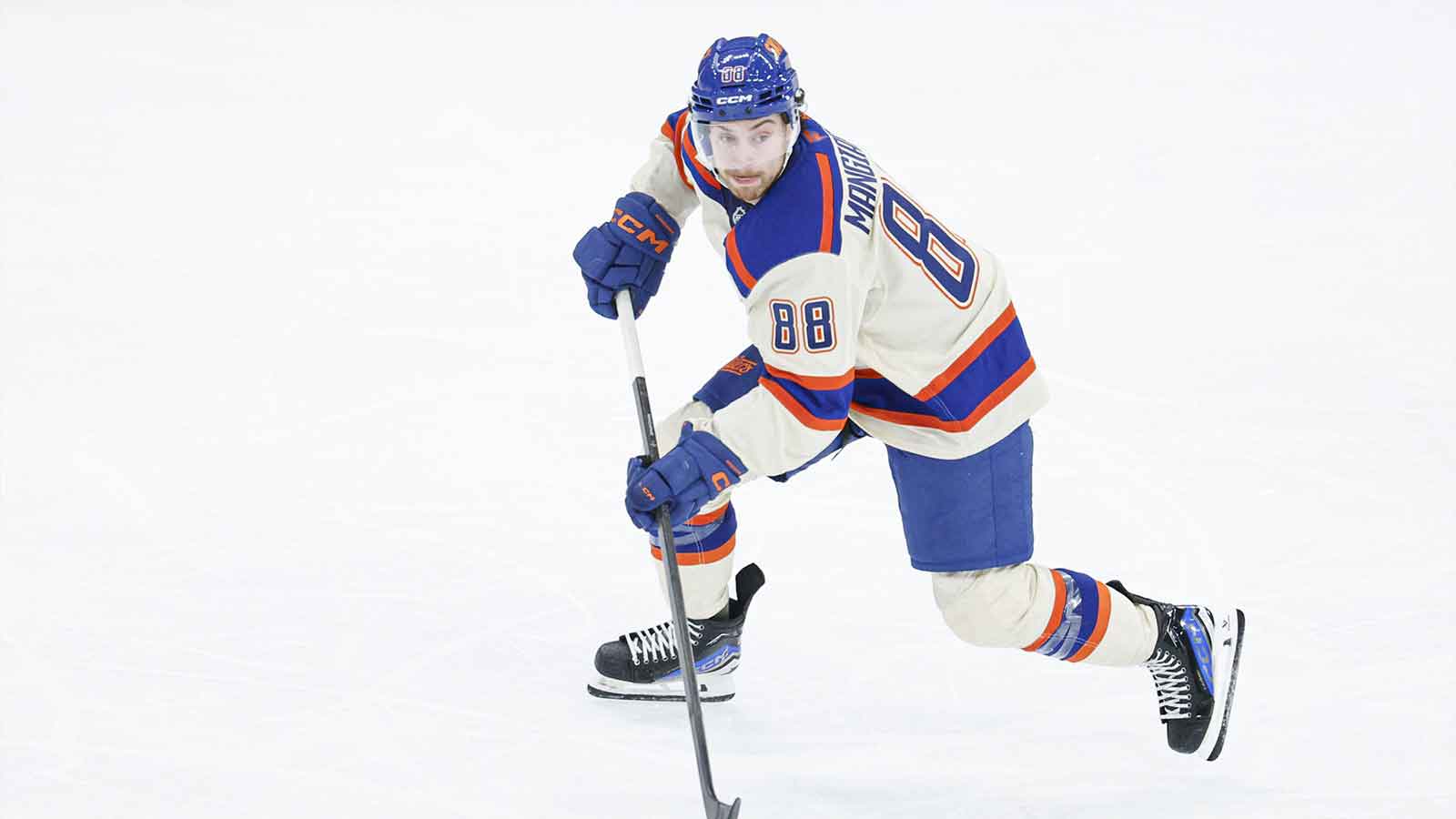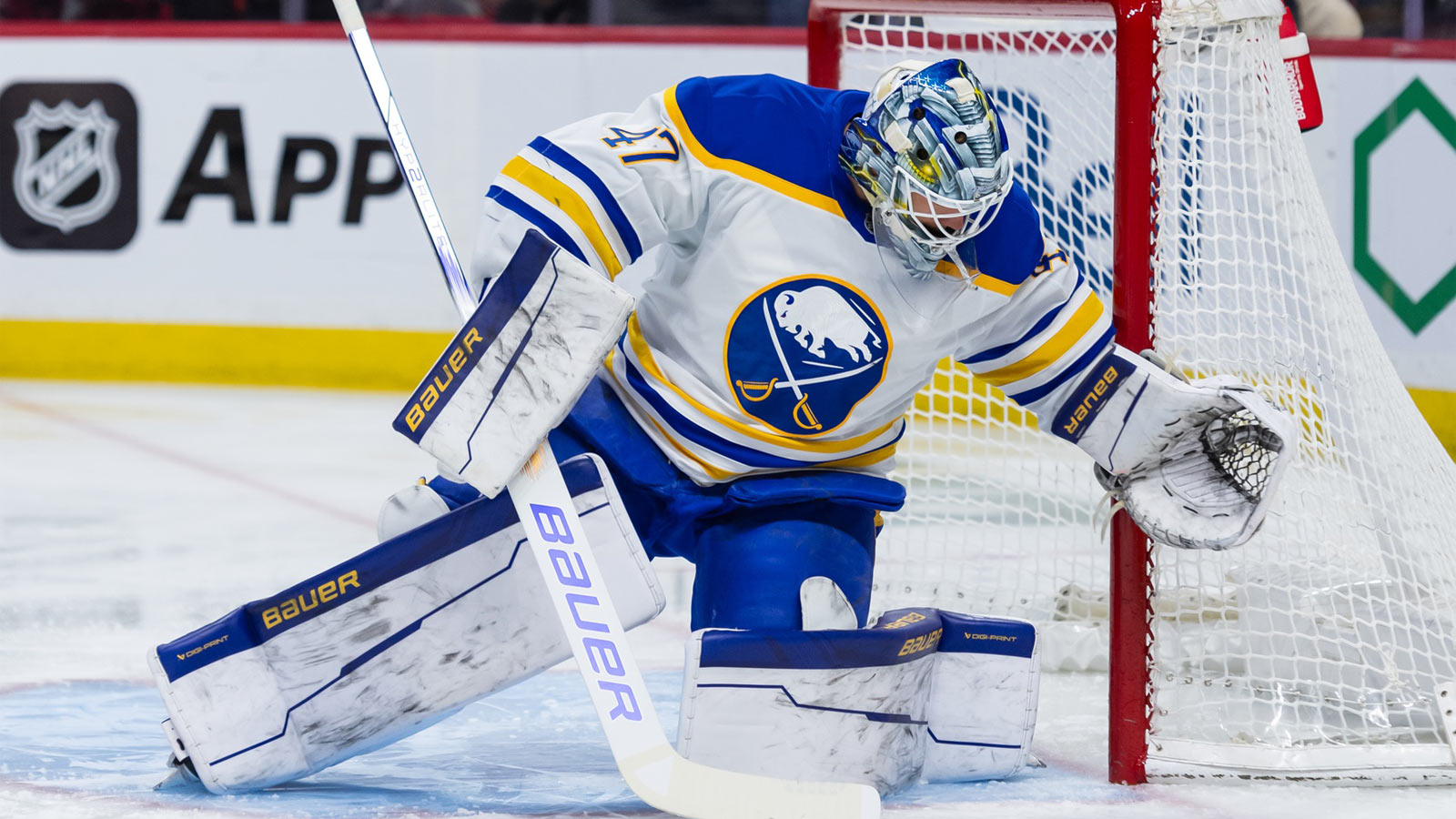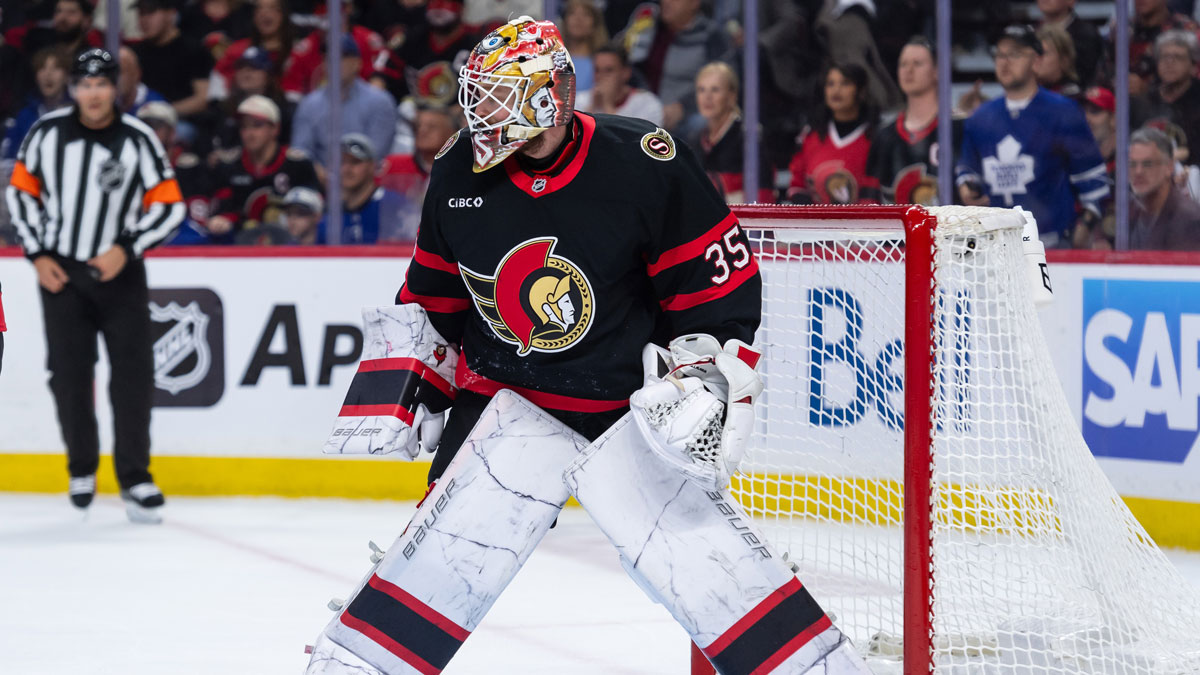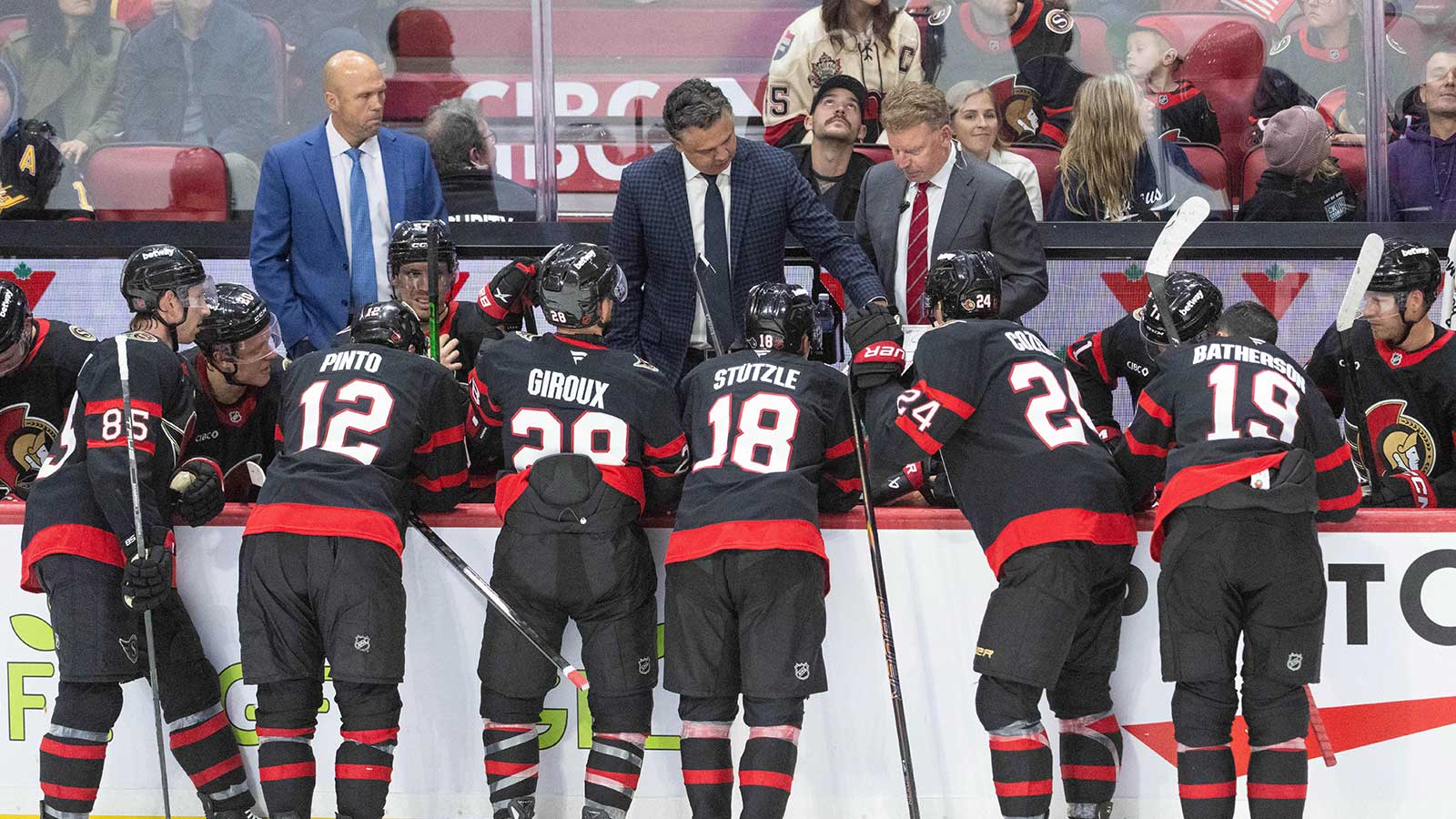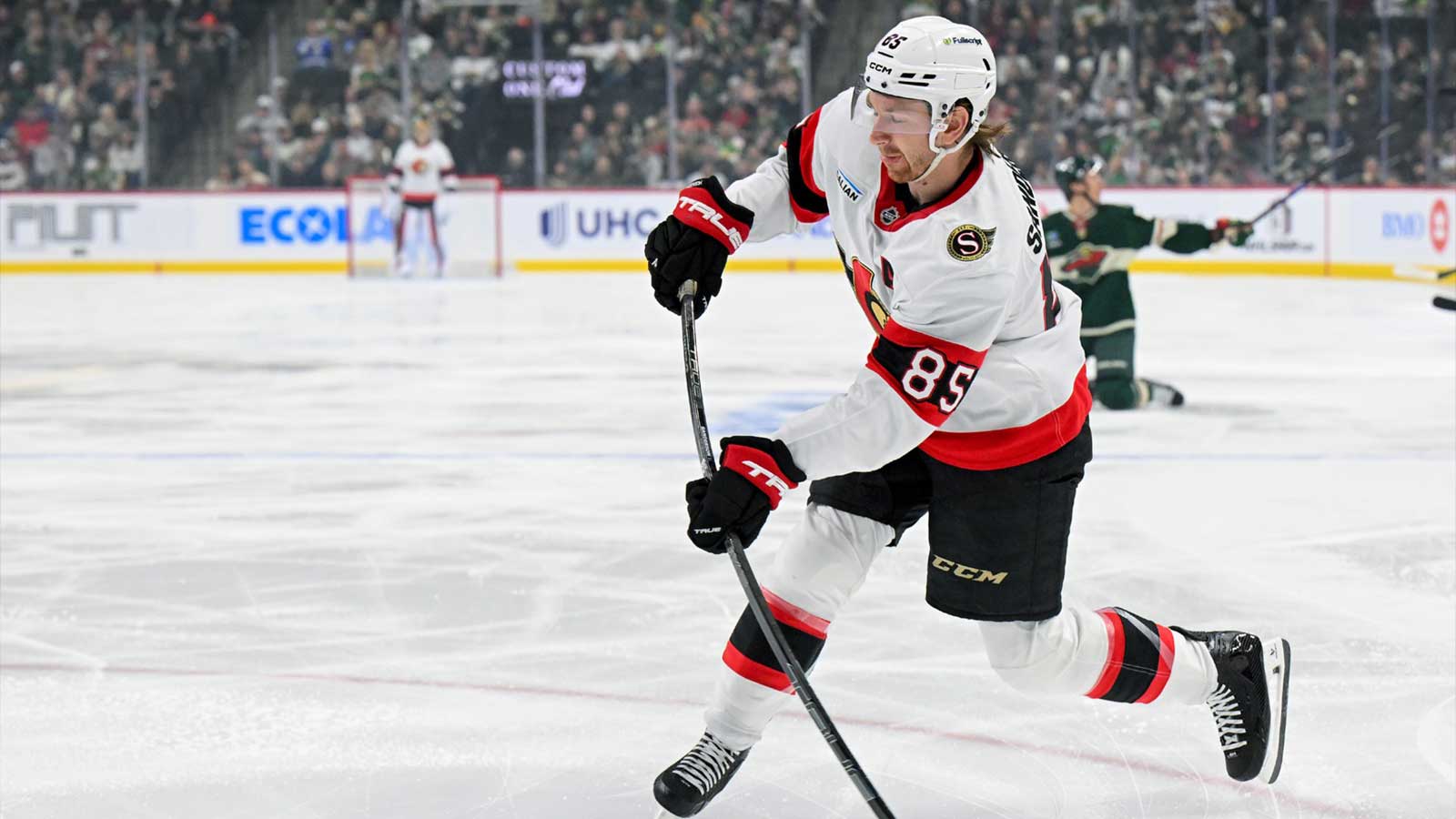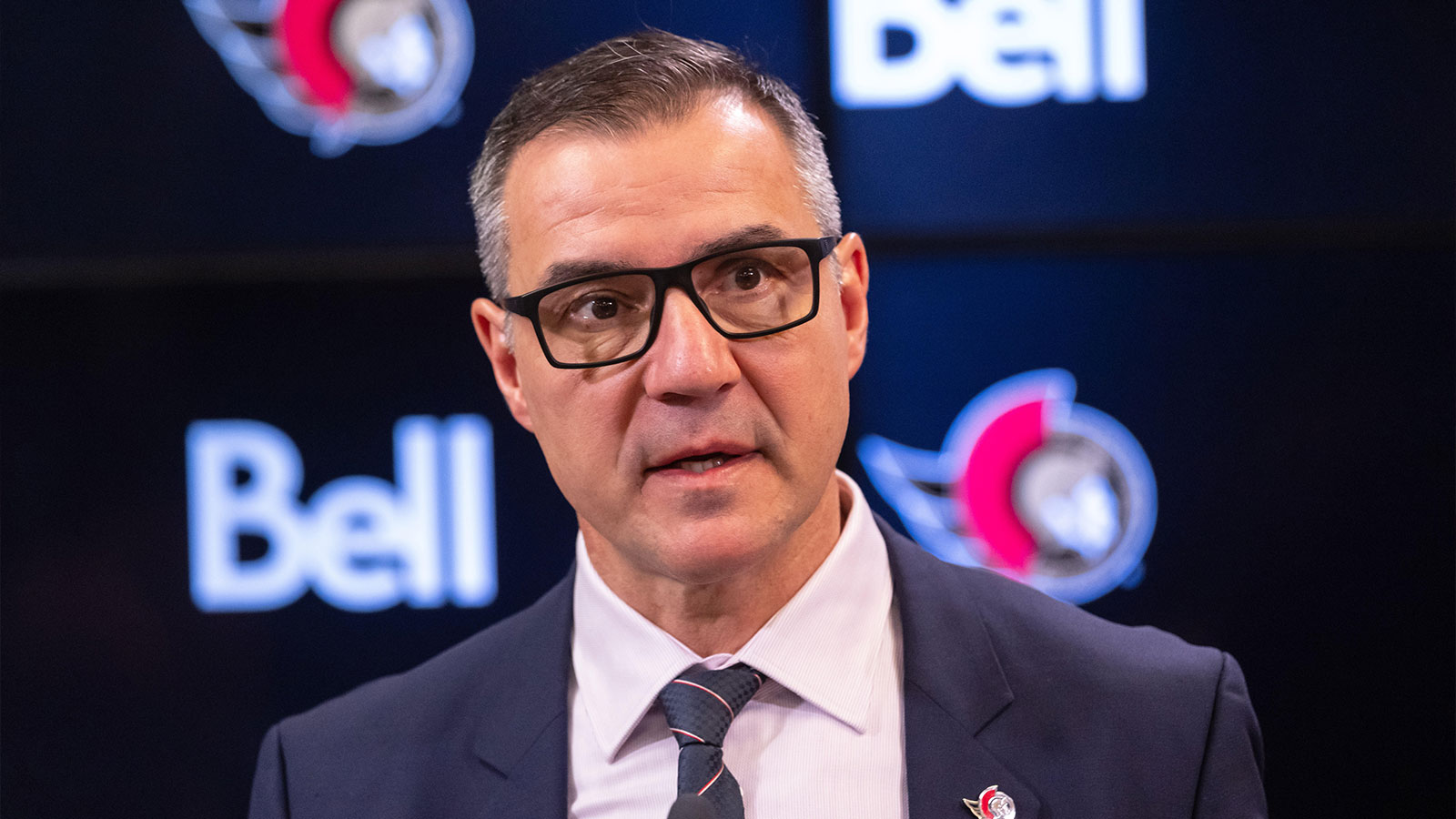The Ottawa Senators signed defensemen Jake Sanderson to an eight-year contract extension on Wednesday, worth $64.4 million.
Sanderson is just 21-years old and was selected fifth overall by the Senators in the 2020 NHL Draft. The defensemen posted 32 points in 77 games during his rookie season and logged nearly 22 minutes per game. His extension carries an $8.05 million cap hit, and will kick in for the 2024-25 season.
Below, we take a look at how the signing breaks down for the Senators.
Jake Sanderson
As the first defensemen selected in 2020, there's a lot of hype surrounding Sanderson's potential in Ottawa. Following his selection, Sanderson spent the next two seasons with the University of North Dakota. Across those two NCAA seasons, he posted nearly point-per-game numbers.
Sanderson made the jump to the NHL last season, and didn't miss a beat. He was already tasked with a huge role, playing against a high quality of competition in a largely defensive role. Despite that defensive role (and his age), he still finished second among Senators' defensemen in points.
The defenseman will also continue to benefit from being part of a defense group with another high-end, left-shot defenseman. Thomas Chabot has averaged 26 minutes per game over three of his last four seasons, and the duo will be a long-term force on the left side of Ottawa's defense group. Mix in Jakob Chychrun and Artem Zub, and the Senators' top-four group is a huge strength. As part of a fairly capable group, Sanderson won't necessarily be counted on for too much before he's ready.
Given his age and the impact he's already had, the sky's the limit with Sanderson.
The term
As for the contract itself, it's a bit of a jarring term initially. Sanderson has still just played 77 games, and Ottawa didn't have much of a sample size of play to work with before offering the extension.
However, looking at Pierre Dorion's recent track record, it's not all that surprising. Over the last couple years, Dorion has signed all of Brady Tkachuk, Josh Norris, Tim Stutzle and Drake Batherson to long-term deals.
Ottawa has taken a gamble on some of those contracts but there's a clear philosophy behind the moves. The Senators have managed to lock up the majority of their best, young players for the foreseeable future. The term itself on Sanderson's deal isn't really an issue, given it should take him through the best years of his career. There really isn't risk of any decline.
Even the trade protection associated with the contract is minimal. It won't kick in until the sixth year of the contract, when Sanderson will receive only a 10-team no-trade list.
It's more so a question of whether the Senators feel as though Sanderson is going to be a top defensemen long-term. But from the time they've drafted him, there haven't been any signs the defenseman won't turn out as expected. He had success in the NCAA immediately after being drafted, and followed that with an excellent rookie NHL season. So while the lack of sample size still means it's a bit of a gamble, all signs point to Sanderson being a top defenseman, and someone the organization will want to have around long-term.
The cap hit
As for the cap hit, it's perhaps even more jarring than the term. It's a significant price for the player, that doesn't leave much room for things to go south.
Again though, the Senators have used this exact strategy before. All of Tkachuk, Norris, Stutzle and Batherson were given a lot of money on a big deal, before they really had the numbers to warrant them. At the same time, each one has worked out. You could argue every one of them is either a bargain, or has the potential to be.
This is a pattern that's emerging for players who sign a deal off their entry-level contract. Another example was the Jack Hughes deal, which has quickly become an extremely valuable contract.
If the Senators had waited for a larger sample size of work before committing, they risk the price tag going higher. Leave him unsigned, and if he comes back with an even better sophomore year next season, that cap hit would've been higher than $8 million.
The Senators are also making this bet as the cap is beginning to rise. Even if Sanderson doesn't necessarily become an elite defensemen and is just a high-end, top-four blue liner, that $8 million will be much less significant than it would've been years before.
So long as Ottawa feels confident in Sanderson being a long-term fit in a large role, committing now makes sense. So far, all signs point to this being yet another worthy game for the team.
Grading Senators-Sanderson contract
In terms of setting an overall grade for the contract, it's a bit more difficult. The most realistic conclusion is that we'll need to wait a few years before really evaluating the deal.
There's certainly risk involved in the contract, but finding good value, long-term deals isn't easy. So long as Sanderson continues to develop into the player the Senators are hoping he'll be, the contract will work out just fine.
Grade: B










